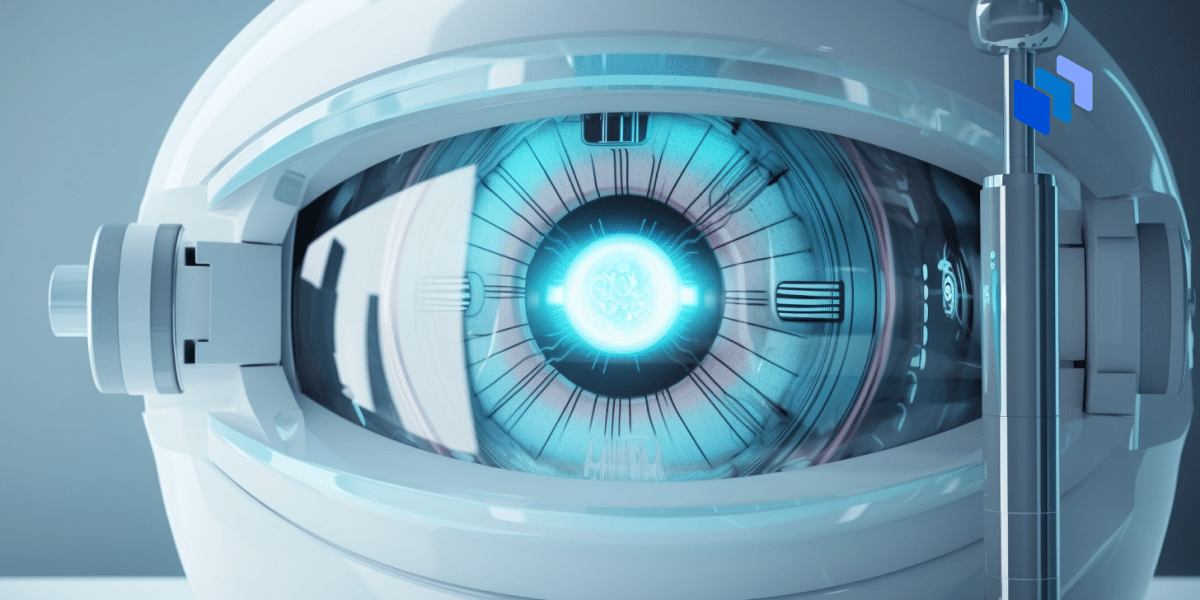Artificial intelligence (AI) cancer treatment is a topic that is gaining traction, particularly due to the complexity of the disease itself.
AI is revolutionizing cancer detection, treatment, with academic studies and innovative projects backed by the European Union helping to inform the future.
However, the use of AI for cancer treatment isn’t without challenges, including data accuracy, privacy, and the need for ethical oversight, amongst others.
So let’s explore the promise and pitfalls of AI cancer treatment in 2023.
The Diversity of Cancer: How AI Cancer Treatment Can Make a Difference
Cancer is often spoken of as if it were one illness. However, the reality is far more complex. Cancer is actually a collection of many related conditions, which happen when cells start to grow too fast. Often, this leads to tumors, which can spread.
The term “cancer” covers over 100 conditions, each with its own risks, tests for diagnosis, and treatment options. Knowing about this range is vital for treatment and care.
Take breast cancer, for instance. This is the most common type of cancer (National Cancer Institute, 2023), but it’s not just one type of cancer — it’s many different kinds, determined by the specific cells in the breast that become cancer. And each type has its own treatment needs (American Cancer Society, 2023).
– Basic Types
- Most breast cancers are called “carcinomas.” These start in the lining of the breast’s milk ducts or milk-making glands.
- Some breast cancers stay in the milk ducts and don’t spread. These are called “in situ” cancers.
- Others spread into the surrounding breast area and are known as “invasive” cancers.
– Common Invasive Types
- The most common type that spreads is “invasive ductal carcinoma.” It makes up 70-80% of all breast cancers.
- Another type that spreads is called “invasive lobular carcinoma.”
– Special Types
- “Triple-negative” is a harder-to-treat type that doesn’t have certain hormone receptors or proteins. It makes up about 15% of breast cancers.
- “Inflammatory” breast cancer is rare but aggressive. It makes the breast look red and swollen.
– Rare Types
- “Paget disease” is rare and affects the nipple and the dark circle around it.
- “Angiosarcoma” starts in blood or lymph vessels and is very rare.
- “Phyllodes tumors” are also rare and grow in the breast’s connective tissue.
The Scope of Cancer Types: More Complex Than You’d Think
Ultimately, even breast cancer, the most common type, isn’t just one disease.
This level of complexity when it comes to just one ‘type’ of cancer underlines just how much cancer isn’t a one-size-fits-all situation.
If breast cancer alone can be broken down into such diverse subtypes, it raises the question: How diverse are other cancers like lung, skin, or prostate cancer? The answer is “very”.
AI Applications in Cancer Care
This is why advancements like AI cancer treatment are essential. AI cancer treatment is rapidly transforming healthcare by addressing the complex challenges posed by various forms of cancer.
This technology analyzes a multitude of variables, continually learning and adapting to the nuances of each cancer type and its subtypes.
As a result, AI develops cancer treatment plans that are as unique as the diseases themselves. This section explores cutting-edge AI technologies and initiatives that are setting new standards in cancer care.
– Diagnosis and Early Detection
AI algorithms are changing how we approach medical imaging. They can analyze images like mammograms and MRI scans faster and sometimes more accurately than human experts. Convolutional Neural Networks (CNNs) are a specific kind of deep learning model making this possible.
For instance, EfficientNet architectures developed in 2019 have been applied to diagnosing various cancer types, including breast cancer (Suh Y.J et al., 2020), lung cancer (Astaraki M. et al., 2021), and brain cancer (Guan Y. et al., 2021).
However, AI cancer detection is not just limited to imaging. It’s also making strides in early cancer detection through blood tests and other non-invasive methods.
For example, machine learning has helped identify markers in blood samples that could indicate cancer (Liu B. et al., 2019; Kawakami E. et al., 2019).
– Treatment Personalization
AI cancer treatment is advancing in one of healthcare’s toughest challenges: personalized medicine. With computational power, AI is transforming the approach to cancer care by being particularly useful in creating customized care plans.
In terms of treatment prediction, methods like using the Support Vector Machine (SVM) and Random Forest (RF) algorithms are effective. These algorithms can process large sets of data quickly, developing cancer treatment plans that are more accurate and personalized (Rezayi S. et al., 2022).
Additionally, personalizing medicine often relies on detailed genetic tests. For example, tests can check breast tumor cells for excessive HER2 protein. Information like this helps in choosing a focused treatment plan. If a unique genetic issue is found, specialized treatments can target it directly (Hauser A. S. et al., 2017).
– Monitoring and Follow-Up
AI cancer treatment is growing in importance, especially in monitoring and follow-up care. EU’s Horizon 2020 program funds several projects that highlight how AI develops cancer treatment that is both tailored and adaptable.
– QUALITOP: AI in Immunotherapy
The QUALITOP project aims to create an open digital platform using AI. This platform targets immunotherapy, identifying key health factors, profile patients, and making real-time suggestions. By incorporating AI, QUALITOP offers precise treatment options that meet individual patient needs.
– ASCAPE: Focus on Breast and Prostate Cancer
ASCAPE is working to build an open AI framework for healthcare settings. It focuses on breast and prostate cancer, delivering services like smart interventions for physical and emotional support. It also improves patient and family counseling. Additionally, ASCAPE aims for early diagnoses and tracks disease patterns.
– CLARIFY: AI Cancer Treatment and Long-term Health
CLARIFY targets long-term health issues in cancer survivors. The project gathers data on survivors of different cancer types. For example, it collects data on breast, lung, and lymphoma cancers. With AI, it identifies factors linked to poor health outcomes, aiming to guide healthcare providers in planning better post-treatment care.
Limitations and Ethical Considerations in AI Cancer Treatment
While AI cancer treatment shows promise in diagnosis and care, limitations and ethical issues exist.
– Data Accuracy and Diversity
A key challenge is data quality. AI algorithms need accurate, comprehensive data that represents all populations. If the data skews toward one demographic, AI cancer treatment could become biased, with treatment plans not working for other groups.
– Privacy and Security Concerns
Health data is sensitive. Its collection and storage for AI cancer treatment must follow strict rules to keep patient information safe. Ethical standards must guide how data is managed, especially when shared across healthcare systems or countries.
– Who is Accountable?
If an AI system errs, like misdiagnosing or suggesting wrong treatment, accountability becomes an issue. Is it the healthcare provider or the AI creators? Doctors use AI for help, but algorithms aren’t always right. A balance between human skills and AI input is vital, with clear procedures for handling errors.
– Access to AI Cancer Treatment
Creating and maintaining advanced AI technologies isn’t cheap. Only well-funded healthcare systems might afford it. This raises ethical questions about fair access to such life-saving AI cancer treatment tech. Efforts must ensure that AI developments in cancer treatment reach everyone, regardless of their financial standing.
– Understanding and Consent
In healthcare, AI usually requires using patients’ data, making informed consent complex. Patients must know how their data will be used and what risks and benefits an AI approach to treatment could bring.
– Need for Ethical Oversight
Finally, AI’s fast growth means ethics must keep pace. Medical ethical committees may need AI experts to grasp the full impact of using AI in healthcare.
The Bottom Line
Cancer is a complex set of diseases, not just one illness. Each kind, such as breast cancer, has different subtypes needing specific treatments, showing how vital AI cancer treatment is.
AI is changing how healthcare approaches cancer. In early detection, AI tools analyze medical images and blood tests quickly, as well as make personalized treatment plans. However, there are some issues. These include data quality, privacy, and who is responsible if mistakes happen. Ethical points like informed consent also need careful attention.
Understanding the different types of cancer helps to see the big healthcare challenge. AI cancer treatment offers more precise and effective plans. However, to get the best out of AI, it needs to address challenges and ethics.
Ultimately, as AI technology improves, better outcomes for cancer patients are on the horizon.







